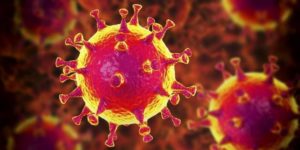REBELLIUOS ANGELS
Maybe it was a gene the demon, the angel which rebelled against Nature-God, that made our ancestors commit the Original Sin which emancipated them from any “Divine and Natural Law”. The purpose of the gene was egoistic: to create a robot, a survival machine which could warrant genes, small fragments of DNA, set inside, to survive forever. Maybe the gene was correlated to the development of the cerebral area charged with language (and “the word was made flesh”). For this reason men could, by communicating one another, get the better, first, of great predators which fed on them, later, of all other living forms.
Centuries after centuries the numerical increase of man has gone on inexorably but slowly, interrupted every now and then by great epidemics of contagious diseases which stopped the progression. In the last two centuries the numbers of human population started increasing exponentially, causing serious problems of overpopulation. Overpopulation, with its pressure on the environment, exposes the life of all living forms, man included, to a risk.
Man’s genes, feeling threatened by the population of robots they had wanted to get immortality, decide to ally just with Nature they had, at first, rebelled at: then viral epidemics, increase of human intraspecific aggressiveness, epidemics of suicides appear within human population. Phenomena, which are apparently different, viral epidemics, increase of human intraspecific aggressiveness, epidemics of suicides, all of them have, in Madame De Loynes’s opinion, a common aim: the reduction of human overpopulation.
On the base of all there are man’s genes, the rebellious angels, allied with other small DNA fragments of Nature: genes of depression (epidemics of suicides), genes of aggressiveness(increase of human intraspecific aggressiveness) viral RNA (epidemics of AIDS and other emergent viruses). The mechanism with which epidemics of suicides, increase of human intraspecific aggressiveness, viral epidemics contribute to stop human overpopulation, is the same with which the classic factors of regulation (famine, predation, disease) act within animal population.
To be continued in:
About the Author
Written by Ferdinando Gargiulo
Ferdinando Gargiulo offers you a new perspective on why new viral epidemics, assaults, infanticides, suicide epidemics and even environmental catastrophes. Always engaged in his research decides to create a blog to offer his readers content of high value.
Search
Recent Post
Follow on Facebook
Find us on Google Plus
Follow on Twitter
Stories Archive
- Blog (132)
- child labor (10)
- child Prostitution (6)
- Climate Change (20)
- depression (53)
- Depression and suicide (51)
- Environmental catastrophes (22)
- epidemics (44)
- Genetic hypothesis of suicide (47)
- HIV (24)
- Leonardo Da Vinci (8)
- overpopulation (108)
- pedophilia (7)
- Serial Killer (33)
- Suicide Genes (46)
- suicides (56)
- The child as a product (10)
- the intelligent virus (106)
- Uncategorized (59,869)
- Unexplained aggression (36)
- You Tube (6)











